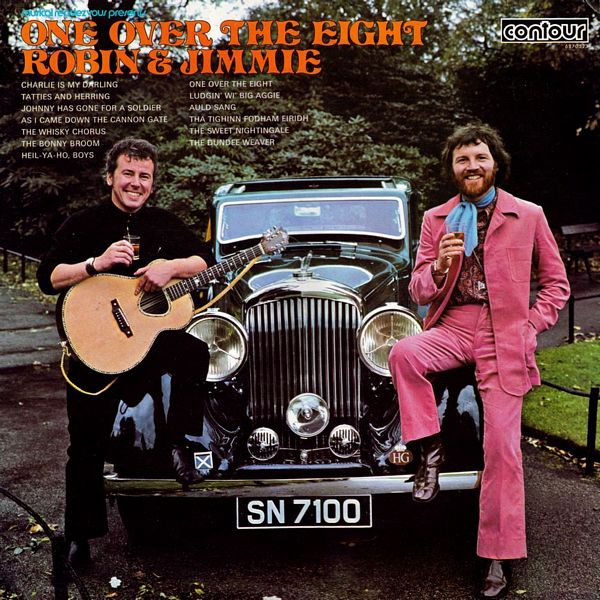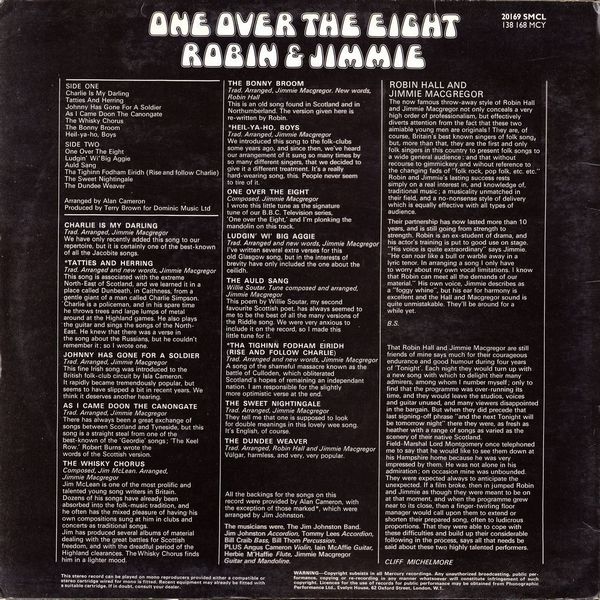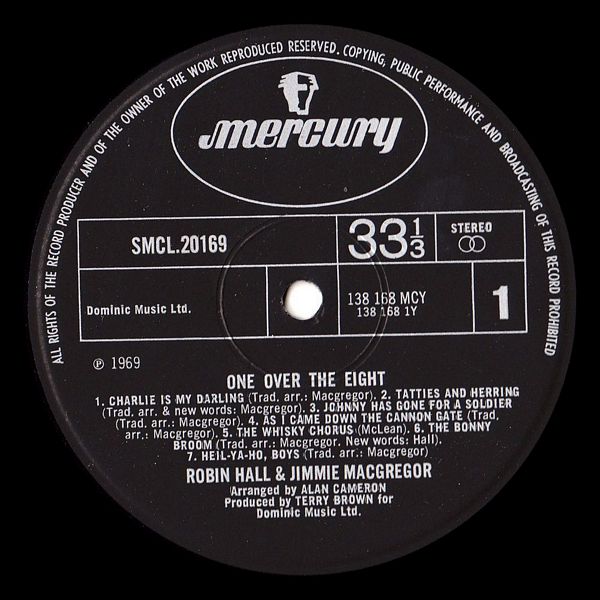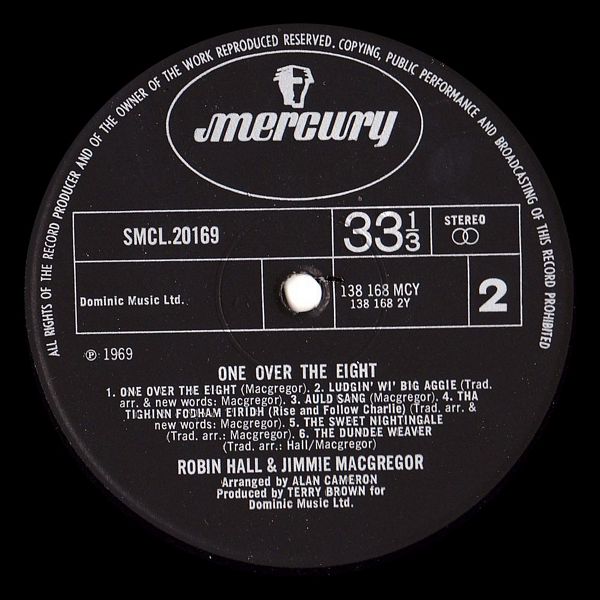

 |


 |
Sleeve Notes
CHARLIE IS MY DARLING — We have only recently added this song to our repertoire, but it is certainly one of the best-known of all the Jacobite songs.
TATTIES AND HERRING — This song is associated with the extreme North-East of Scotland, and we learned it in a place called Dunbeath, in Caithness, from a gentle giant of a man called Charlie Simpson. Charlie is a policeman, and in his spare time he throws trees and large lumps of metal around at the Highland games. He also plays the guitar and sings the songs of the North-East. He knew that there was a verse in the song about the Russians, but he couldn't remember it; so I wrote one.
JOHNNY HAS GONE FOR A SOLDIER — This fine Irish song was introduced to the British folk-club circuit by Isla Cameron. It rapidly became tremendously popular, but seems to have slipped a bit in recent years. We think it deserves another hearing.
AS I CAME DOON THE CANONGATE — There has always been a great exchange of songs between Scotland and Tyneside, but this song is a straight steal from one of the best-known of the "Geordie" songs; "The Keel Row." Robert Burns wrote the words of the Scottish version.
THE WHISKY CHORUS — Jim McLean is one of the most prolific and talented young song writers in Britain. Dozens of his songs have already been absorbed into the folk-music tradition, and he often has the mixed pleasure of having his own compositions sung at him in clubs and concerts as traditional songs. Jim has produced several albums of material dealing with the great battles for Scottish freedom, and with the dreadful period of the Highland clearances. The Whisky Chorus finds him in a lighter mood.
THE BONNY BROOM — This an old song found in Scotland and in Northumberland. The version given here is re-written by Robin.
HEIL-YA-HO, BOYS — We introduced this song to the folk-clubs some years ago, and since then, we've heard our arrangement of it sung so many times by so many different singers, that we decided to give it a different treatment. It's a really hard-wearing song, this. People never seem to tire of it.
ONE OVER THE EIGHT — I wrote this little tune as the signature tune of our B.B.C. Television series, "One over the Eight," and I'm plonking the mandolin on this track.
LUDGIN' WI' BIG AGGIE — I've written several extra verses for this old Glasgow song, but in the interests of brevity have only included the one about the ceilidh.
THE AULD SANG — This poem by Willie Soutar, my second favourite Scottish poet, has always seemed to me to be the best of all the many versions of the Riddle song. We were very anxious to include it on the record, so I made this little tune for it.
THA TIGHINN FODHAM EIRIDH (RISE AND FOLLOW CHARLIE) — A song of the shameful massacre known as the battle of Culloden, which obliterated Scotland's hopes of remaining an independent nation. I am responsible for the slightly more optimistic verse at the end.
THE SWEET NIGHTINGALE — They tell me that one is supposed to look for double meanings in this lovely wee song. It's English, of course.
THE DUNDEE WEAVER — Vulgar, harmless, and very, very popular.
ROBIN HALL and JIMMIE MACGREGOR
The now famous throw-away style of Robin Hall and Jimmie Macgregor not only conceals a very high order of professionalism, but effectively diverts attention from the fact that these two amiable young men are originals! They are, of course, Britain's best known singers of folk song, but, more than that, they are the first and only folk singers in this country to present folk songs to a wide general audience: and that without recourse to gimmickery and without reference to the changing fads of "folk rock, pop folk, etc. etc." Robin and Jimmie's lasting success rests simply on a real interest in, and knowledge of, traditional music; a musicality unmatched in their field, and a no-nonsense style of delivery which is equally effective with .all types of audience.
Their partnership has now lasted more than 10 years, and is still going from strength to strength. Robin is an ex-student of drama, and his actor's training is put to good use on stage. "His voice is quite extraordinary," says Jimmie. "He can roar like a bull or warble away in a lyric tenor. In arranging a song, I only have to worry about my own vocal limitations. I know that Robin can meet all the demands of our material." His own voice, Jimmie describes as a "foggy whine", but his ear for harmony is excellent and the Hall and Macgregor sound is quite unmistakable. They'll be around for a while yet.
B.S.
That Robin Hall and Jimmie Macgregor are still friends of mine says much for their courageous endurance and good humour during four years of "Tonight". Each night they would turn up with a new song with which to delight their many admirers, among whom I number myself; only to find that the programme was over-running its time, and they would leave the studios, voices and guitar unused, and many viewers disappointed in the bargain. But when they did precede that last signing-off phrase "and the next Tonight will be tomorrow night" there they were, as fresh as heather with a range of songs as varied as the scenery of their native Scotland. Field-Marshal Lord Montgomery once telephoned me to say that he would like to see them down at his Hampshire home because he was very impressed by them. He was not alone in his admiration; on occasion mine was unbounded. They were expected always to anticipate the unexpected. If a film broke, then in jumped Robin and Jimmie as though they were meant to be on at that moment, and when the programme grew near to its close, then a finger-twirling floor manager would call upon them to extend or shorten their prepared song, often to ludicrous proportions. That they were able to cope with these difficulties and build up their considerable following in the process, says all that needs be said about these two highly talented performers.
CLIFF MICHELMORE